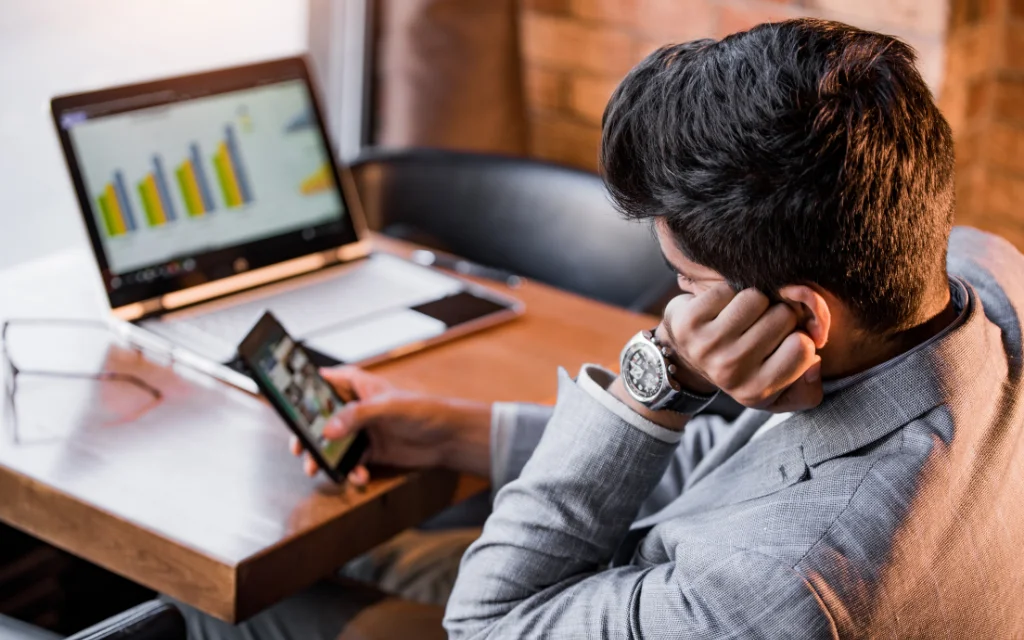Wisdom of Our Body tells us to slow down, but that evening, around 7 p.m., I was parked in a dark garage in the heart of the city, still wearing my seatbelt, texting two men who had shown sexual interest in me.
“What are you doing this evening?” I kept checking my phone every few minutes, waiting for a reply. The emptiness inside me felt louder, expanding with each passing moment. Lost in social media, I finally got a response—one man invited me over for supper at his place nearby.
I ended up drinking too much wine that evening, having an intimate relationship with the man that I had not intended or consented to, and leaving his place feeling much more empty than when I had arrived.
Wisdom of Our Body whispers even when we try to ignore it. Though I felt a deep presence within me, I managed to distract myself. I was a woman in my early twenties with a stable corporate career. On the side, I had a part-time job that let me explore the city and connect with people. I was simply living, enjoying myself, and staying busy.
Once again, my mother was being excessively sensitive and destroying my fun when she expressed some resistance to my social life because I was not spending much time with my family. I responded to her feelings with impatience and disdain.
Two days later, I had an hour-long trip to the city for an evening party for my part-time job after a busy day at the office and a fully booked day of hot yoga at 5am. I started driving back to the suburbs soon after midnight that night after being promoted to a senior position on my part-time team and partying, only to wake up to the sounds of a desolate, chilly roadway.
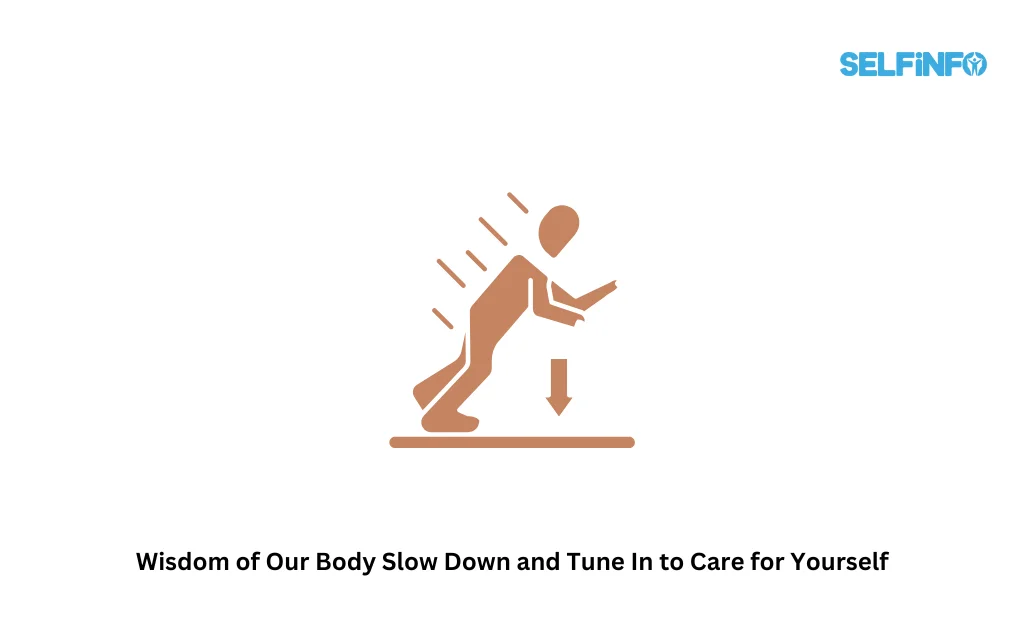
I slept off while driving the lengthy distance between the city and the suburbs on a Wednesday morning at one in the morning. I awakened up to a startling and abrupt swerve, first into a brush that scraped the windshield, and then, in an instant, broken glass and metal smashed into the center divide of Highway 280.
I was shocked to see a deflated airbag that had just hit me in the face, flames rising, and stark headlights on cement. I asked myself, “Was this a dream? Let it be a dream, please.
Invisible and alone on the freeway, I was left behind by a few speeding cars in a body plagued with shock. I raised my leg in excruciating pain, the deadweight of a fractured bone, in a state of profound horror and dread at realizing it was not a dream. The orange toenails of a swollen foot were hanging madly, unattached to my leg, as I looked down.
The policeman who discovered me stopped by to have a blinding look at my glaring eyes through the debris of my car.
I admitted, “Yes, earlier,” before he returned to his patrol car, which seemed to be miles away. I was afraid of dying there on that interstate from the flames of this serious error, therefore I was concerned that he had moved far away in case my automobile exploded.
It was shocking how sterile the hospital emergency room was at 1:30 in the morning. severing the green chiffon gown I was wearing to celebrate a recent promotion at work. They ripped it right through the center. I felt defenseless and voiceless as icy scissors slid over me, slicing open my panties without regret.
On a cold, hard table, I was left exposed as strangers’ shadows watched. Hours later, I learned that I had broken my right ankle, fractured my left hip, and required emergency surgery after a series of tests, medications, and fuzzy memories.
The hardest thing I have ever had to do was phone my parents at six in the morning the following day. I woke them up to inform them that I had not arrived home that evening, but had spent the previous five hours in the hospital, was in terrible condition, and required emergency surgery, for which they had to be there.
Additionally, my father had to locate the emerald green Civic they gave me in 1995, which had been impounded somewhere I did not know about and that none of us could recognize.
In the months that followed, I was recuperating and receiving care from my family while using a wheelchair and not being able to bear any weight on either leg. I felt compelled to calm down, practice meditation, think, and connect with my sick body and soul.
It was a humiliating and agonizing experience, particularly since I was unable to bathe, cook, or even use the restroom on my own. As my body and life healed, my loneliness was transformed into thankfulness, the identities I carried like expensive handbags were abruptly rendered meaningless, and the shallow relationships I surrendered my body to felt wasteful.
I become aware of how disembodied I was in the moments leading up to the disaster. The day I crashed my life as I had knew it, I had been up for twenty hours. I was numbing myself to the point where I did not even realize how exhausted I was, but I had been giving my body away to strangers, acquaintances, drugs, and activities in an attempt to feel more alive.
I probably would have recognized that I needed a pause to rest, communicate my loneliness in ways that were nourishing to me, and take a deep breath if I had been a little more aware of my body. I would have found a safe friend to stay with in the city instead of choosing to go to yoga at 5 a.m. on the day of a work party that was supposed to last into the night.
I was not paying attention to the advice my body was providing me, nor was I paying attention to my mother or anybody else who showed concern or affection.
I still frequently reflect on this period of stress and recovery six years later. I would impart four things that I believe are crucial for our physical, mental, spiritual, and social well-being if I could whisper something in the ear of that twenty-four-year-old who is sitting in that dark garage and putting others before herself:
1. Slow down and tune in. Ask yourself and your body curious questions.
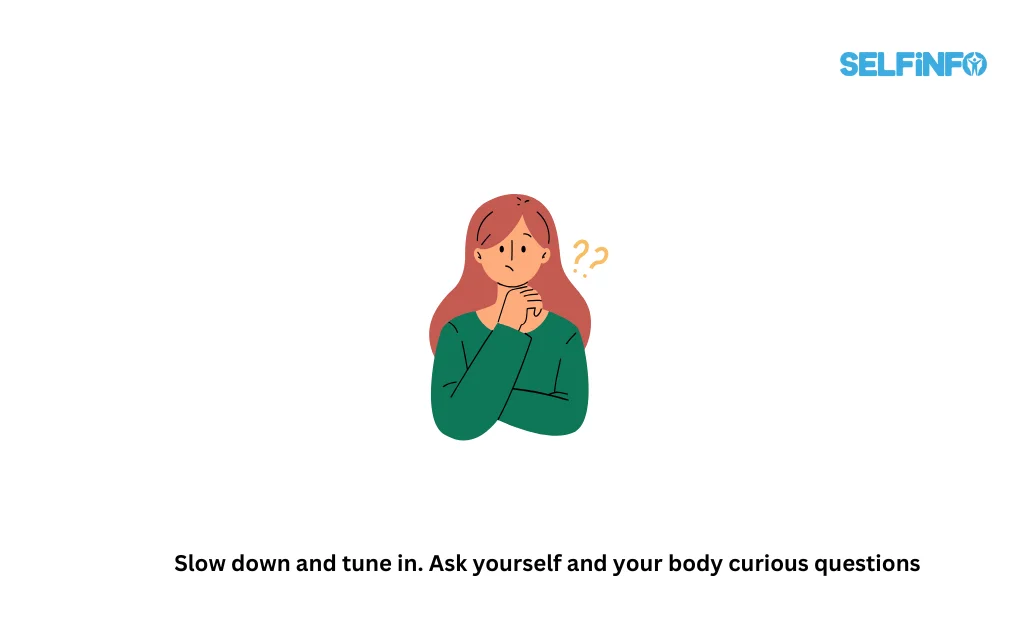
You are not necessarily living your best life just because you are really busy. Take some time to be with your body and yourself, to feel into it, and to pay attention when it gets too hard. Talk to your body, ask it what it needs, and be prepared to listen to it—sometimes silently—patiently and without passing judgment.
Effective methods for tuning in to the wisdom of the body and the heart include journaling, meditation, and internal-focused activities like yoga (with rest) or solo dancing.
I had little time to check in with myself since I was so busy during this disaster that I was living on autopilot. I felt validated and valuable by being continuously on the go because busyness and doing the most are rewarded in Western culture.
Additionally, I started to identify with being constantly busy, and I would criticize myself when I “was not doing enough.” Sometimes I still have a long way to go, so it helps to remember myself and give myself time to calm down.
2. Honor your feelings, even the uncomfortable and “negative” ones, by giving them space to be as they are; they will change, as all things do.
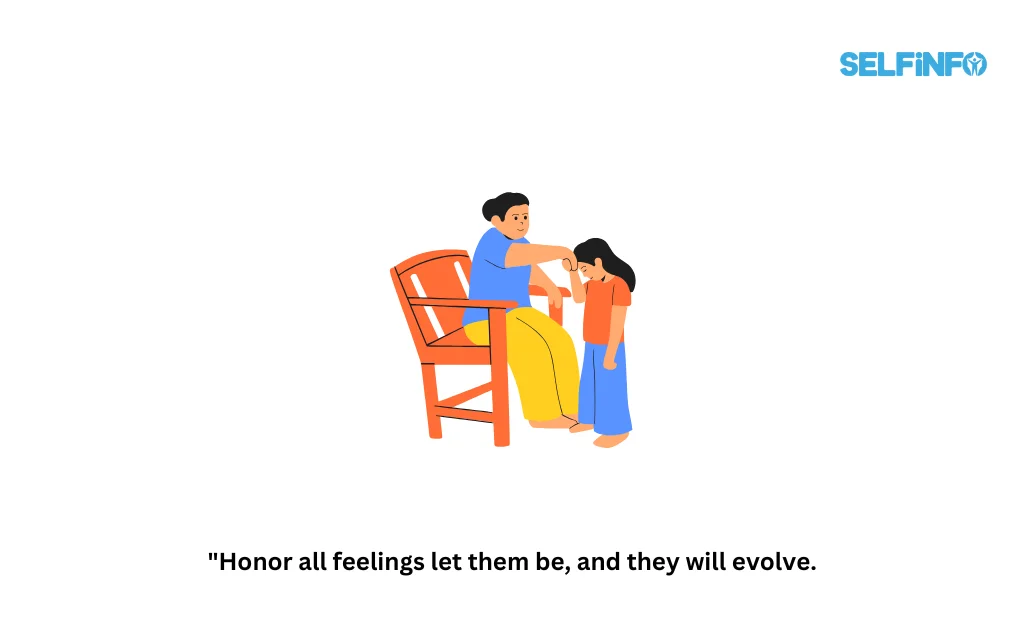
Recognize the emotions you often desire to avoid, such as melancholy, loneliness, and jealousy. Be aware of when you want to immediately repair it or divert your attention from it, then let the feelings room to flow.
Acknowledge that these emotions are excellent indicators and insights about what you may desire on a mental, emotional, physical, and even spiritual level. Above all, understand that no state of mind (or anything) endures forever and that these emotions change like all other emotions.
I was making every effort to get away from my loneliness. Before I could give myself time to listen to what my body was telling me, I was prepared to give it away. I was numbing and ignoring it when it told me to slow down, to give myself some love, care, and attention first, and to rest.
3. Take time to play and creatively express yourself.
Play games, move your body and express yourself to a song, create music with whatever is in and around you, draw or paint something without judgment, tell jokes to yourself or others, climb trees and convene with nature, speak in babble to a friend.
I especially notice that my energy shifts dramatically when I dance, climb, or draw. My emotions are moved when I laugh, or when I get on all fours and walk around like our ancestors. I try to practice going to these mechanisms before distracting myself from uncomfortable feelings or thoughts with technology binges or substances like food or pot.
4. Massage your body.
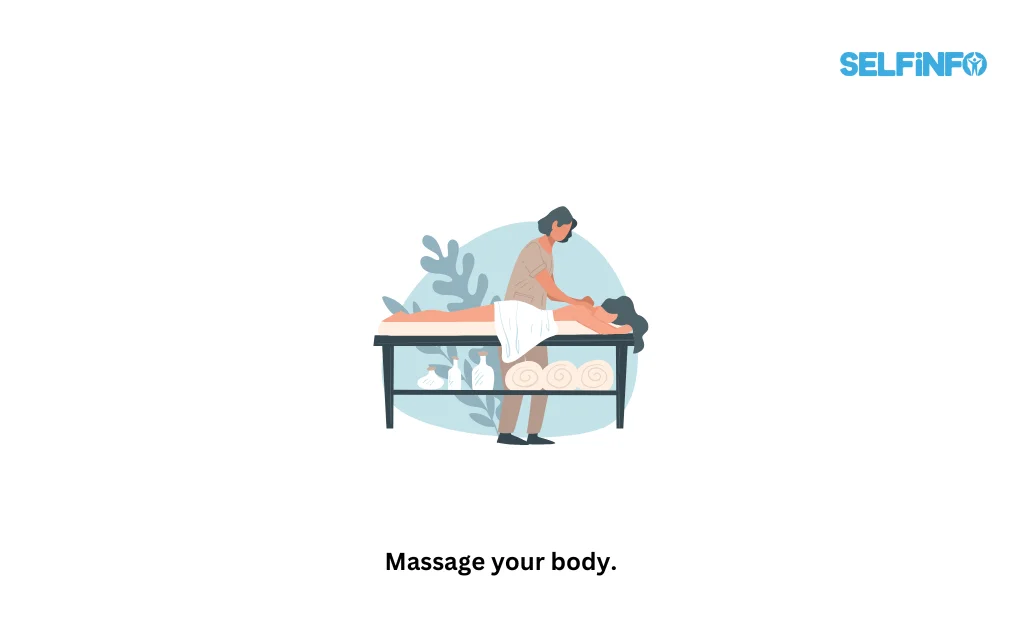
Touch the stiff spots on your body and massage yourself. Take note of your breathing, release any tension by inhaling and exhaling, and massage yourself as you choose. Think about the time and attention you are providing to yourself. It is incredible how we can frequently provide ourselves with just what we require.
Our society tells us that in order to be complete or deserving of anything, we must have this or that. Nevertheless, our bodies have all the knowledge we require to lead a wholesome, conscious, and attentive life. We can get a lot of strength and healing from simply using our own touch to massage ourselves.
I was taking a passive approach to my health and wellbeing, as if I were living my life as a passenger. I had no idea that I was in control, both physically and figuratively, with the ability to destroy and reconstruct in an instant.
I have also examined my body using movement, somatic therapy, and psychological training since regaining my ability and freedom to walk, run, wash, and feed myself. I have improved my awareness of my physical and psychic senses, utilizing the complex feedback they provide me constantly to choose what suits me best, including when I need to sleep, be alone, and form healthy connections.
I think about this accident time whenever I revert to my old habits of letting go of myself in the expectation of being satisfied by outside forces. It is particularly difficult to remember the anguish on my parents’ and brother’s faces when they first came to the hospital to visit me following the accident.
I also remember that every step I take is a message from this priceless body, and it is my responsibility to pay attention to it and treat it with love and care. Furthermore, I have observed my increased, sincere ability to provide attuned care to and with others as I am able to take attentive and committed care of my own body and self.
